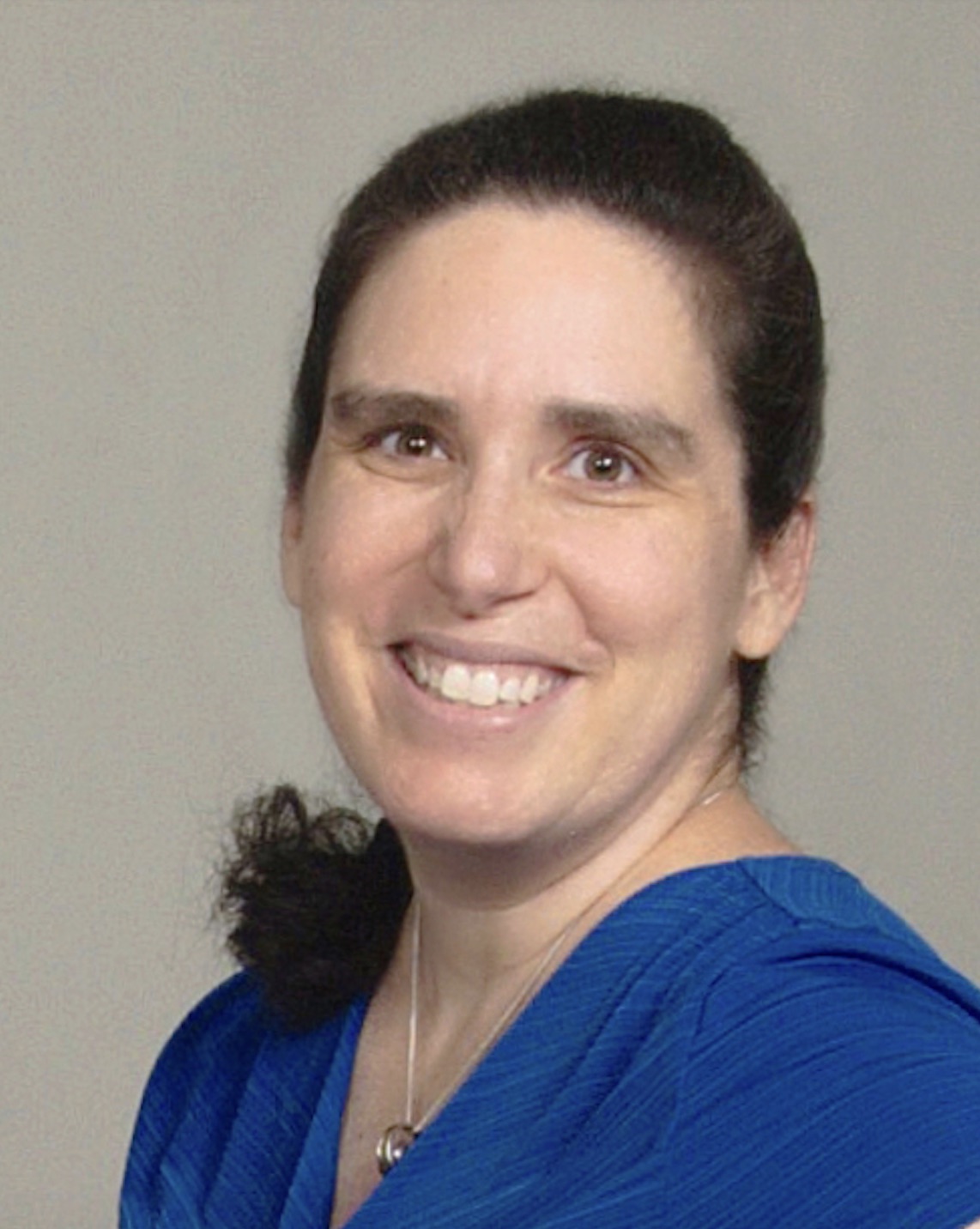Rachel Pulverman-Silverman, Ph.D.

Associate Professor of Psychology
Campus Address: DSU Downtown, Budd Hall, Room 114, 120 N. State St, Dover, DE 19901
Email: rpulverman [at] desu.edu
Phone: (302) 736-2405
Education
- B.A., Psychology (Cognitive Studies Concentration), Cornell University, 2000
- M.A., Linguistics, University of Delaware, 2002
- Ph.D., Linguistics (Psycholinguistics Specialization, University of Delaware, 2005
- Postdoctoral training: Developmental Psychology, University of Michigan, 2007
Research Interests
My research focuses primarily on language and cognitive development in infants and young children. I am particularly interested in the interactions of cognitive, linguistic, social, and cultural factors in influencing early word learning. I am also involved in research on how adults learn to talk about motion events in a second language.
Research Expertise
- Language Development
- Cognitive Development
- Experimental Design for Infant Research
- Proficient in Multiple Languages
Publications
- Song, L., Pulverman, R., Pepe, C., Golinkoff, R. M., & Hirsh-Pasek, K. (2016). Does the owl fly out of the tree or does the owl exit the tree flying? How L2 learners overcome their L1 lexicalization biases. Language Learning and Development, 12, 42-59. doi: 10.1080/15475441.2014.989051
- Chen, J., Tardif, T., Pulverman, R., Casasola, M., Zhu, L., Zheng, X., & Meng, X. (2015). English- and Mandarin-learning infants’ discrimination of actions and objects in dynamic events. Developmental Psychology, 51, 1501-1515. doi: 10.1037/a0039474
- Pulverman, R., Song, L., Hirsh-Pasek, K., Pruden, S. M., & Golinkoff, R. M. (2013). Preverbal infants’ attention to manner and path: Foundations for learning relational terms. Child Development, 84, 241-252. doi: 10.1111/cdev.12030
- Pulverman, R., & Lukowski, A. F. (2012). Research is nothing to cry about, but your participants might disagree: Methods for studying infant development. In J. D. Rich (Ed.), Research doesn’t have to be boring: Techniques and methods to apply to real life (pp. 41-72). Dubuque, IA: Kendall-Hunt.
- Chen, J., Zheng, X. B., Meng, X. Z., Pulverman, R., Tardif, T., & Zhu, L. Q. (2012). 汉语婴儿词汇学习的注意偏好 (Attentional bias for word learning? Mandarin-speaking infants’ discrimination of persons, actions, and objects). 心理科学(Psychological Science), 35, 786-792.
- Chan, C. C. Y., Tardif, T., Chen, J., Pulverman, R. B., Zhu, L., & Meng, X. (2011). English- and Chinese-learning infants map novel labels to objects and actions differently. Developmental Psychology, 47, 1459-1471. doi: 10.1037/a0024049
- Maguire, M. J., Hirsh-Pasek, K., Golinkoff, R., Imai, M., Haryu, E., Vanegas, S., Okada, H., Pulverman, R., & Sanchez-Davis, B. (2010). A developmental shift from similar to language specific strategies in verb acquisition: A comparison of English, Spanish, and Japanese. Cognition, 114, 299-319. doi: 10.1016/j.cognition.2009.10.002
- Chen, J., Chan, C., Pulverman, R., Tardif, T., Casasola, M., Zheng, X., & Meng, X. (2009). English- and Mandarin-speaking infants’ discrimination of persons, actions, and objects in a dynamic event without audio inputs. In 2009 IEEE 8th International Conference on Development and Learning (pp. 1-7). doi: 10.1109/DEVLRN.2009.5175539
- Pulverman, R., Golinkoff, R. M., Hirsh-Pasek, K., & Sootsman Buresh, J. (2008). Infants discriminate manners and paths in non-linguistic dynamic events. Cognition, 108, 825-830. doi: 10.1016/j.cognition.2008.04.009
- Brandone, A., Golinkoff, R. M., Pulverman, R., Maguire, M. J., Hirsh-Pasek, K., & Pruden, S. M. (2007). Speaking for the wordless: Methods of studying cognitive linguistics in preverbal infants. In M. Gonzalez-Marquez, I. Mittelberg, S. Coulson, & M. Spivey (Eds.), Methods in cognitive linguistics (pp. 345-366). Amsterdam: John Benjamins.
- Brandone, A., Addy, D. A., Pulverman, R., Golinkoff, R. M., & Hirsh-Pasek, K. (2006). One-for-one and two-for-two: Anticipating parallel structure between events and language. Proceedings of the Annual Boston University Conference on Language Development, 30, 36-47.
- Pulverman, R., Hirsh-Pasek, K., Golinkoff, R. M., Pruden, S., & Salkind, S. J. (2006). Conceptual foundations for verb learning: Celebrating the event. In K. Hirsh-Pasek & R. M. Golinkoff (Eds.), Action meets word: How children learn verbs (pp. 134-159). New York: Oxford University Press.
- Pulverman, R., Hirsh-Pasek, K., Pruden, S., & Golinkoff, R. (2006). Frühkindliche voraussetzungen für das erlernen von verben. (Precursors to verb learning: Infant attention to manner and path.) Frühförderung interdisziplinär (Interdisciplinary Early Childhood Intervention), 25, 3-13.
- Pulverman, R., & Golinkoff, R. M. (2004). Seven-month-olds’ attention to potential verb referents in nonlinguistic events. Proceedings of the 28th Annual Boston University Conference on Language Development, 473-481.
- Golinkoff, R. M., Pence, K., Pulverman, R., Salkind, S. J., & Zosh, J. M. (2004). Review of Early Category and Concept Development: Making Sense of the Blooming, Buzzing Confusion. By David H. Rakison and Lisa M. Oakes (Eds.). New York: Oxford University Press, 2003. Journal of the American Academy of Child and Adolescent Psychiatry, 43, 783-784.
- Pulverman, R., Sootsman, J. L., Golinkoff, R. M., & Hirsh-Pasek, K. (2003). The role of lexical knowledge in nonlinguistic event processing: English-speaking infants’ attention to manner and path. Proceedings of the 27th Annual Boston University Conference on Language Development, 662-673.
- Pulverman, R., Sootsman, J. L., Golinkoff, R. M., & Hirsh-Pasek, K. (2003). Infants’ non-linguistic processing of motion events: One-year-old English speakers are interested in manner and path. In E. V. Clark (Ed.), Proceedings of the 31st Child Language Research Forum (pp. 11-20). http://cslipublications.stanford.edu/ CLRF/2002/CLRF-2002-title.html.
- Hirsh-Pasek, K., Hennon, E. A., Golinkoff, R. M., Pence, K., Pulverman, R., Sootsman, J., Pruden, S., & Maguire, M. (2001). Social attention need not equal social intention: From attention to intention in early word learning. Behavioral and Brain Sciences, 24, 1108-1109.

